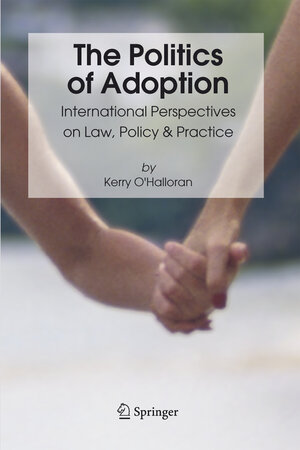Adoption has always had a political dimension. Its potential use to achieve political ends has been evident throughout history and in many different cultures. In Roman 1 times an emperor would adopt a successful general to continue his rule. In Ireland under the Brehon Laws the reciprocal placements of children between clans was 2 an accepted means of cementing mutual allegiances. In Japan the adoption of non-relatives was traditionally seen as a means of allying with the fortunes of 3 the ruling family. The willingness of governments to use adoption as a political strategy was apparent, for example, in Australia where it was used to further 4 the assimilation of indigenous people. It is now present in the phenomenon of intercountry adoption where the ? ow of children, particularly in the aftermath of war, is often politics by proxy and which arguably attracts the involvement of 5 some countries for reasons of economic and political expediency. Adoption does not function in isolation. It plays a distinct role within the c- text of family law proceedings. The extent to which it is available as a resource for children in the public care system or as an adjunct to marriage proceedings is essentially politically determined. It is itself susceptible to political in? uence. 6 In fact direct political leadership, exercised ? rst by President Clinton and then 1 See, Gibbons, The Decline and Fall of the Roman Empire, Harrap, London 1949 at p. 30.
The Politics of Adoption von Kerry O'Halloran | International Perspectives on Law, Policy & Practice | ISBN 9781402041549







